“Human beings are capable of the most horrible things”: An interview with The Painted Bird actor Stellan Skarsgård
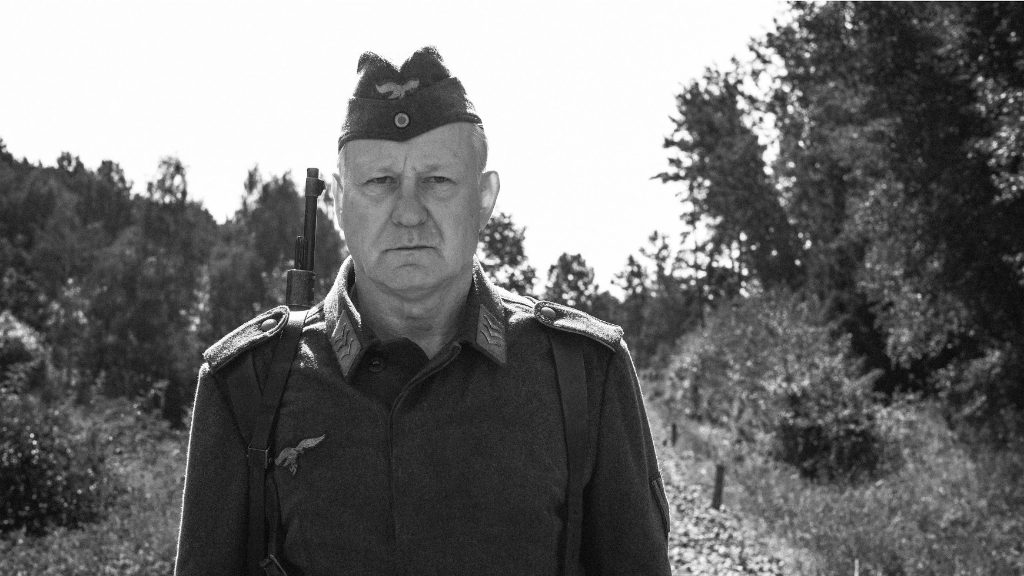
Stellan Skarsgård discusses his role in Václav Marhoul’s harrowing post-World War II epic The Painted Bird. He talks global politics and the nature of cinema, with comments on his performance in the HBO series Chernobyl. He also stars in Hope, a new Nordic terminal illness drama-cum-love story.
How did you get involved with The Painted Bird?
I was contacted by [the director] Václav Marhoul 11 years ago, and he told me he’d spent two years trying to get the rights to the book, and said he wanted to write a script and make a film out of it. It’s a project that is almost impossible to finance, and I think it’s a great book [written by Jerzy Kosiński] and I really wanted to see him do it, so I said yes immediately, and then it took him ten years to get the financing together. And eventually Harvey Keitel came on, and Julian Sands, and Udo Kier and several other actors, and he got some brave financiers that were prepared to pay for a film that took two years to shoot in black and white on a very dark subject. I was very happy to see it made. It’s the kind of film that’s not being made, basically. It’s not dialogue-driven, there’s almost no dialogue at all. It’s extremely cinematic; it’s very visual and very powerful.
Could you describe your character in the film and what function he has within the wider narrative?
The film is about this boy that is wandering around in Europe during the Second World War, lost, and he encounters different people throughout his journey, and I’m playing a German soldier that is one person that he meets. I would say that it’s one of the few nicer people in the film, but maybe that’s a spoiler. I don’t even know if he’s nicer than anyone else, but he’s one of the people in the film that does not mistreat him. But there are other nice people like the man who catches birds, there’s a lot of nice people but they often have really bad endings. It’s not much of a character though; I shot for two days, it’s a very small role, so I was there to help finance it and support the film.
It’s a very small role in the film, however integral it is, so how did you prepare for a short scene that has such dramatic force?
The preparation was the same. I need to know who [the character] is, one way or another – by instinct or through intellect – and I have to understand his function in the film, and create a solid presence in no space at all. The good thing is that I didn’t have any lines to learn, and I hate doing homework.
When the film premiered in Venice last year there was a mixed reaction, with some people leaving the screening. This sort of thing gets blown out of proportion and misrepresented, but a lot of people will be affected by the violence and the unrelenting brutality. Why do you think such explicit depictions are necessary in telling these stories?
It’s a question that needs a couple of different answers. First of all, I saw the premiere in Venice, and yes, I would say about 15 people walked out. Most of them came back when they had peed. It was an eight- to ten-minute standing ovation afterwards, so I wouldn’t say it was a mixed reception, it was a fantastic reception and the reviews were great, but of course, as you say, whatever creates a headline is good. Regarding the reaction to violence, we all have different capabilities for distancing ourselves to the power of cinematic story. I have a brother who cannot see any films where you feel sorry for someone – for anybody – which means that 95% of all the films in the world he cannot see because he gets so emotionally upset. I understand that he should walk out of the cinema and he should actually not see this film because you get upset and you do feel sorry for people.
But when it comes to the depiction of violence. I read a review of Lars von Trier’s The House that Jack Built and the reviewer complained that the violence wasn’t pleasant enough to watch, and it’s to me an odd idea that violence always should be pleasant, when in reality it never is. There’s much less violence in this film than there is in any popcorn film, but the violence is truthful. It’s like you see people die to the left and the right in all those action films, and then you see a film about the act of killing, where there’s one murder, and it goes on forever and is really brutal and gives you an idea of what it’s like to murder someone and to be murdered. I think if you want to show violence, you can show it as entertainment and you can mow down 400 star troopers without considering their widows and children, but you also should be allowed to show violence in all its horror.
The film’s violence is offset by beautiful, pristine landscapes and artful cinematography. Is that contrast what people find shocking: the fact that these horrors are married to an explicit art object?
Yeah, they might be upset about that, but the style and artiness of the film does not dominate the story. It’s just the way the story is displayed. Also what I’ve said to people is that all the people that are doing horrible things here, they don’t have swastikas on their arms, which means that they look like normal human beings, and it’s much easier if you have defined who is good and who is evil. When this poor woman who is living in the forest gets beaten up by a lot of normal, nice peasant women, it’s upsetting not only because it’s a lynching scene, but because it’s normal people doing it – which means it’s very true to human nature. Most of the horrors are made by human people. I remember when Bruno Ganz played Hitler in Der Untergang, Downfall. They criticised the film because Hitler was portrayed as a human being, and that is the most stupid criticism you can ever come up with because Hitler was a human being – and that’s the problem. It wasn’t like all Germans during the war were just evil people. It was normal people, like you and me, and we had the lynching scenes. Recently there have been lots of lynchings in India; America has a great tradition of lynching. Man, as a human being you are capable of the most horrible things under certain conditions, and if you don’t recognise that, you will not be able to prevent it from happening again.
Do you think the decision to make the film in the inter-Slavic language is a comment on the anonymous acts of evil from people across Europe? By not specifying the perpetrators, it suggests that a general barbarism breeds from conflict, violence and genocide.
I think that’s a very good idea because of course they prefer to do it, especially the nationalistic sentiment in Poland right now, it wouldn’t be too nice or easy to make them all Poles, because you would have a Polish uproar from the government, who claimed that all Poles were very nice to all Jews. It is good that you are not defining nationally, or ethnically, or ideologically, all those people that commit horrible things. It gives it a quality of general human condition, and I think it’s very powerful.
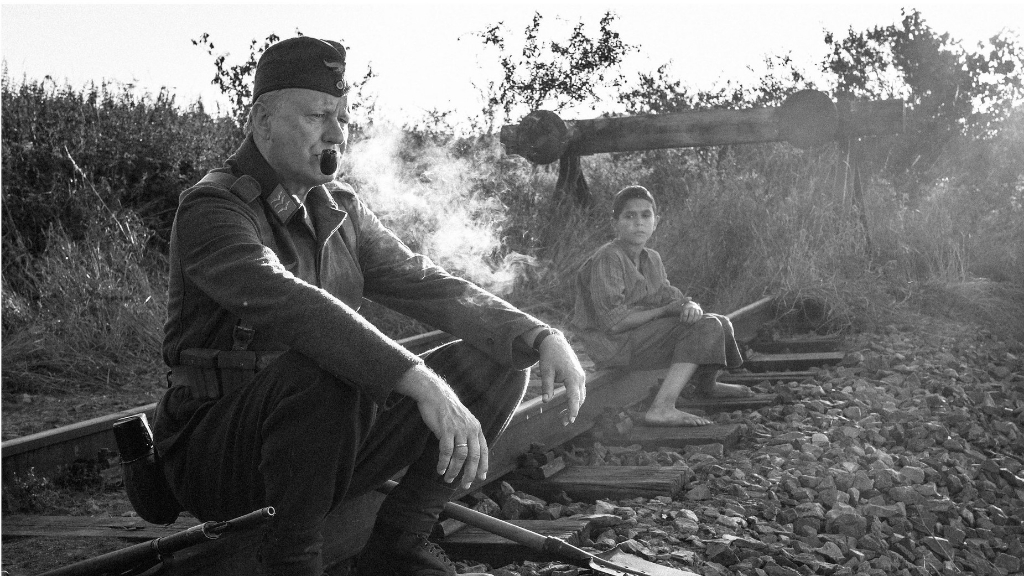
Do you think it’s important to read this film as a historical piece, or should we be drawing temporal parallels with what’s happening today across Europe?
It’s not historical. It’s happening everyday in the world. Africa’s full of it, I talked about lynchings in India; people are horrible to people all over the world. You could say that in Western Europe we’ve had two decades of decency, and that decency might wither away and you might see the beast in us again.
You’ve worked recently on the HBO series Chernobyl, which is another type of portent for our current environmental woes. Could you speak about the show’s importance?
The importance of the Chernobyl series is, not only is it about the impossible environmental impact of a nuclear disaster – I don’t even know if we can save the planet without nuclear power now, in the state we’re in – I can’t judge that. What it really is about is lies, the importance of being able to face facts, and allowing people to see facts. We live in a time where lies are part of the political landscape, they’re everywhere and they’re there for certain reasons, for certain people and ideas to gain momentum. People are lying all the time – not everyone is lying as much as Trump does, who lies about 17 times a day, and that’s not counting the lies he tells to his wife. But it was lies that led to the Chernobyl disaster. There are compromises too, you’re prepared to lie or look away from facts to save the face of a system. You also look away to save the profit of a company, like Boeing did with the safety issues of their planes. In Fukushima, they looked away from the safety issues and built a reactor that couldn’t withstand a tsunami. You have to support the truth and science every day in the world today.
You’ve worked a lot with Lars von Trier in your career. Are you tired of defending the “ethical value” of his films?
No. I don’t have any ethical problems with Lars von Trier’s films at all. That’s not a problem. You have problems with the perceptions of them, when he’s accused of being misogynistic. No one has written as many fantastic roles for women as he has, and he is those women! He’s not very good at writing male roles though, which I have suffered from, but of course if you mean that if you don’t portray a woman as a heroine, who is all-good, all-smart and strong, then that’s misogyny, then you’re in trouble.
Can you comment on Roman Polanski’s recent César win?
I haven’t seen the film so I can’t comment on it.
Can you talk about your role in Hope, which recently featured at the Berlinale?
It’s interesting because Maria Sødahl has made a film about when she was diagnosed with lethal cancer at Christmas and they were celebrating with the six kids they had. I’ve known her for 25 years because I’ve done six films with her husband, Hans Petter Moland, who is a director, so I was very well aware of the story, and she contacted me and said she wanted to make a film about it and I was a little wary, as I thought it was dangerous. Maybe you’re too close to the material, maybe you can’t distance yourself enough, another fucking cancer film, I was wary. But then she sent me two pages of the synopsis and then I said yes immediately, just to those two pages, as she showed that she had enough distance to herself, most of all, but also, it was not only a cancer film, it was actually a love story and a story about living together: family, children, everything, and the difficulties and wonders of that.
But I’m actually playing, on paper, Hans Petter Moland, who’s my old friend, and I promised him I would not play him, I would not imitate him in anything. But he is a very generous man and he wants his wife to make whatever film he wants, but I feel he has mixed feelings about being portrayed the way I portrayed him. But I keep telling him, your reputation is much better now, since I’ve played you.
Any final thoughts on the The Painted Bird?
I hope it gets seen and I hope people aren’t too afraid of SARS to go see it.
Joseph Owen
The Painted Bird is released in selected cinemas on 11th September 2020. Read our review here.
Watch the trailer for The Painted Bird here:

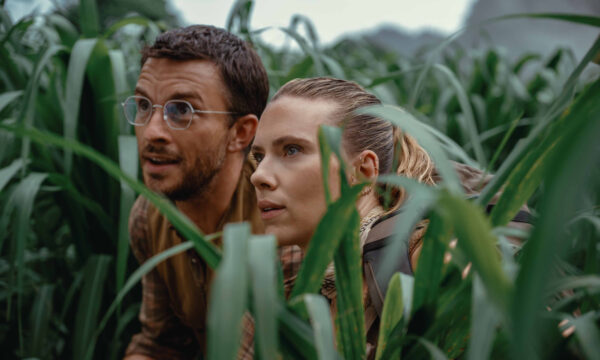
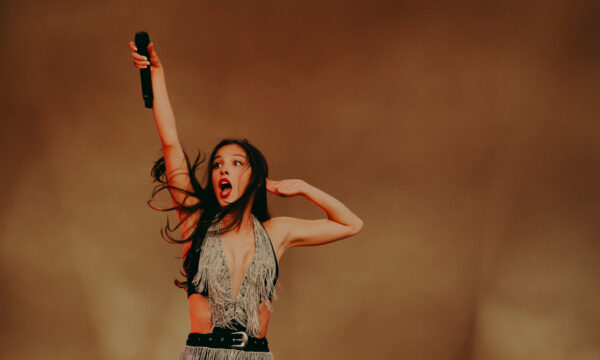
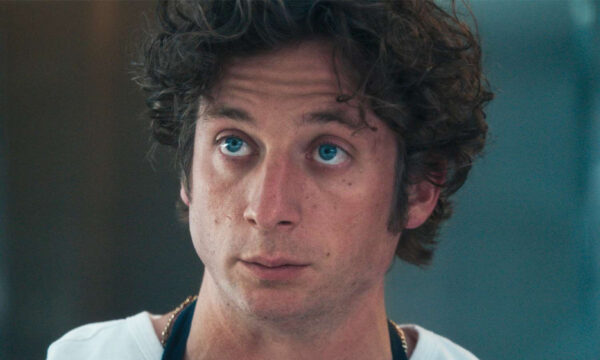
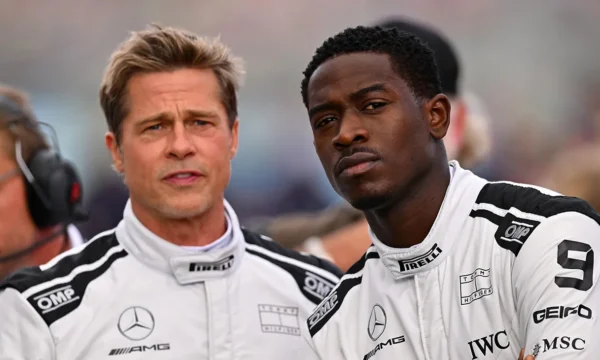
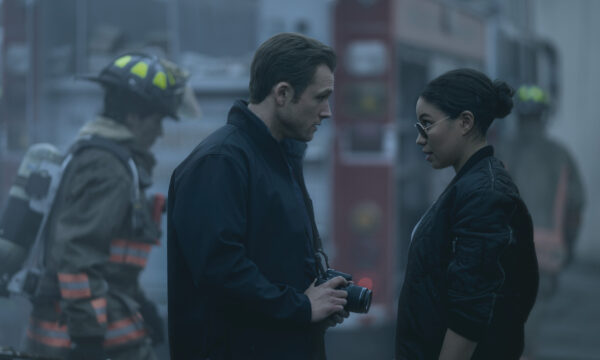
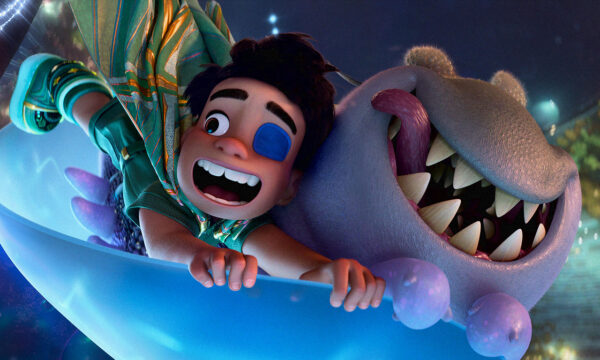
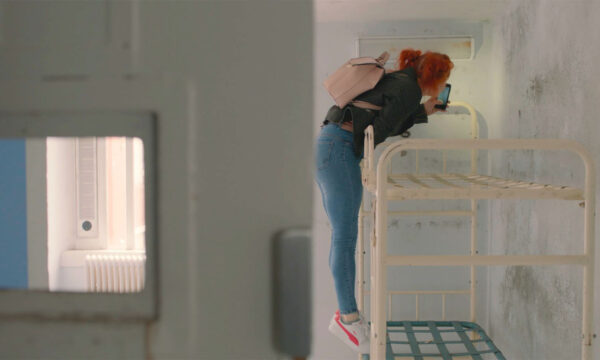
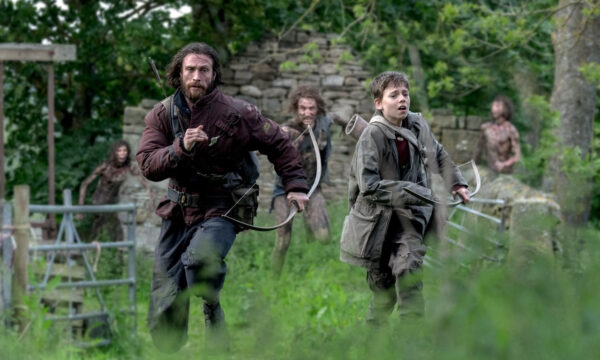
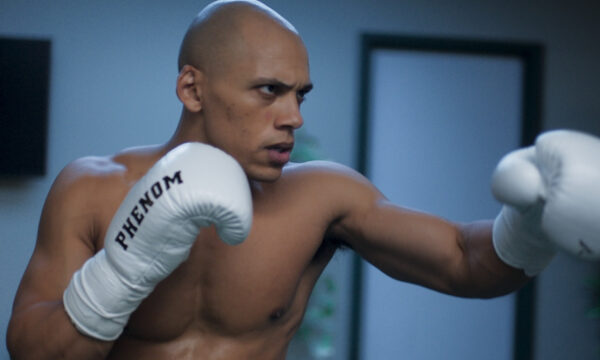
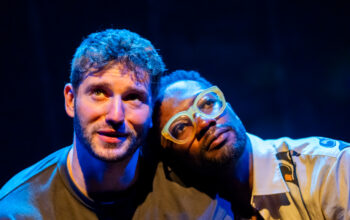
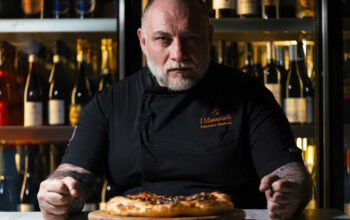
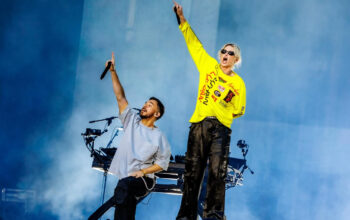
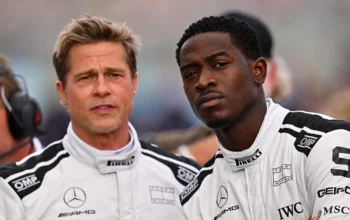
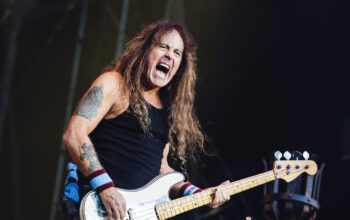
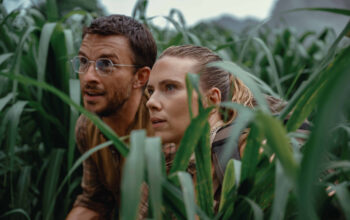









Facebook
Twitter
Instagram
YouTube
RSS